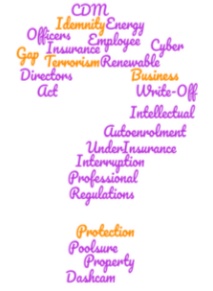
Iceland may have overcome the England football team at the Euros this summer,
but they may now face stiffer opposition from Iceland (as in the frozen food supermarket). Iceland Foods registered ‘Iceland’ as an EU trademark in 2014 and have, allegedly, tried to use the trademark to prevent ‘proper’ Icelandic companies such as Iceland Gold and Clean Iceland trading in the EU. Iceland (the country) are somewhat peeved and despite negotiations to reach a compromise, are now taking legal action to have the trademark rescinded.
Time will tell whether Iceland Foods have met their match, but they will not be the first or last big company to flex their muscles to protect their brand. McDonalds have successfully stopped smaller companies such as McMunchies, McCoffee and McSleep using ‘Mc’, even though some were trading before McDonalds existed. Although big companies do not always succeed, with McCurry in Malaysia and McAllan in Denmark winning legal cases to retain their names.
But it is not just about big brand names or David and Goliath battles, most companies whatever their size, have Intellectual Property. It can be ideas, names, designs, symbols, artwork, writings, databases, products, processes or services. Basically anything they have created. They are the intangible assets and are often more valuable than a company’s physical assets, particularly with the increase in companies involved in technology and innovation within our economy.
However, many companies do not realise that they have Intellectual Property, how much its worth, how it can be used, or that it can be protected. A start is to assess the products and services that are key to your business and make sure that logos and other designs are owned by you and not a third party creator.
Intellectual Property can be protected by a range legal measures. Patents for new inventions can cover anything from what the products do, what they are made of or how they are made or work. Trademarks protect brands which could be names, products or services and can comprise of words, logos, sounds or even actions. Design rights protect the visual appearance of a product. Copyright the written word, music or films and television and the law of confidentiality enables companies to protect other trade secrets with non-disclosure agreements.
These laws and rights not only protect the Intellectual Property, they enable companies to control the sharing or Intellectual Property by licencing or franchising. However, enforcement can be costly. Solicitors and possibly court action maybe involved and as not all companies will have such deep pockets as the big corporates, specialist insurance is available to protect your business.
Intellectual Property insurance cover can vary enormously from insurer to insurer. Limited cover for defence costs, should you unintentionally infringe another company’s Intellectual Property rights, can form part of Professional Indemnity, Cyber Liability or Legal Expenses policy, however they do not generally provide pursuit and enforcement cover against a company infringing your rights.
Specialist Intellectual Property policies can offer a range of options starting from ‘opinion only’, which may be suitable for start-up or small companies to full blown cover which can include damages awarded against you, recall and destruction costs if imposed by a court, as well as loss of revenue involved with either defence or pursuit and enforcement of your rights. Whether there are territorial or jurisdiction restrictions is a key consideration, as there is often the need to take action outside of the UK.
It can be complicated, but if you have a brand, design or products that are valuable to you (or your competitors) it will be well worth your time seeking guidance on the insurance protection available.


Recent Comments